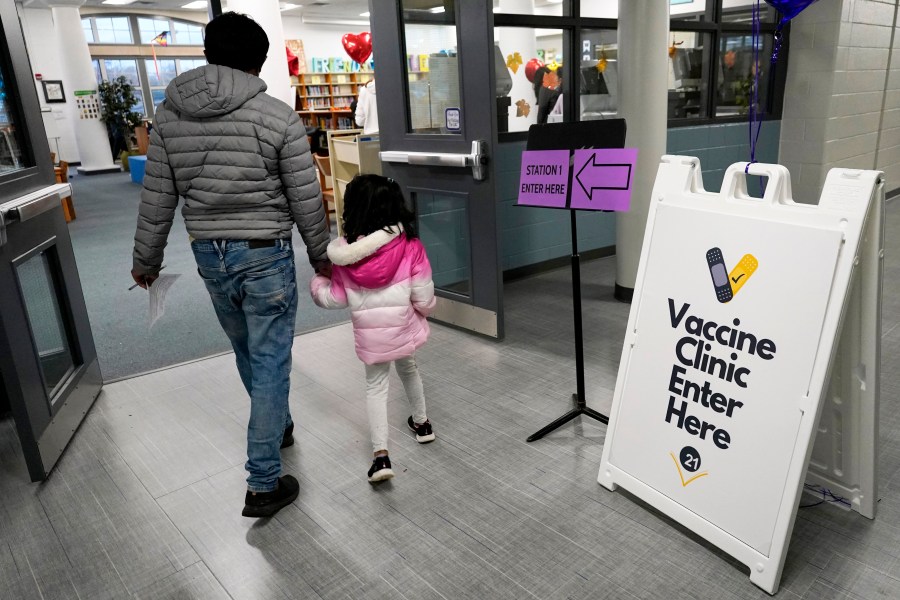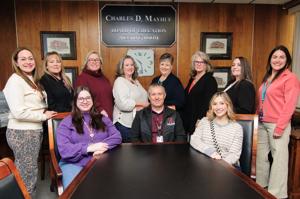Health
Pediatricians Challenge CDC Guidelines to Uphold Scientific Integrity

Pediatricians across the United States have voiced strong opposition to the guidelines issued by the Centers for Disease Control and Prevention (CDC), emphasizing the need to maintain scientific integrity in the face of perceived political interference. This pushback from the American Academy of Pediatrics (AAP) marks a significant moment in the ongoing discourse surrounding public health policy and pediatric care.
The AAP has raised concerns that certain recommendations from the CDC may not align with the best available scientific evidence. In a recent statement, the organization emphasized the importance of prioritizing child health and safety over political considerations. The AAP’s stance reflects a growing frustration within the medical community regarding what they view as politicization of health guidelines.
Concerns Over Political Influences
The debate centers on how guidelines are formulated and the motivations behind them. Pediatricians argue that the integrity of scientific research should remain untouched by political agendas. According to Dr. Moira Szilagyi, president of the AAP, “Our commitment is to the health of children, and we must ensure that our recommendations are based solely on rigorous scientific evidence.”
This challenge to the CDC’s authority comes as public health officials navigate a complex landscape influenced by shifting political tides. The AAP’s rebellion signals a desire to protect children’s health by insisting on transparency and adherence to scientific principles. As the medical community grapples with these issues, the implications for pediatric care could be profound.
Amidst this backdrop, the CDC has defended its guidelines, asserting that they are based on comprehensive data and expert consultations. However, the AAP’s position raises critical questions about how public health recommendations should be developed and who ultimately gets to shape them.
Impact on Pediatric Care and Public Perception
The fallout from this confrontation could have lasting effects on public perception of medical institutions. Many parents look to organizations like the AAP for guidance in making health decisions for their children. If the public begins to question the credibility of the CDC due to perceived political influences, it could undermine trust in health recommendations at large.
Moreover, the AAP’s actions may inspire other medical organizations to reconsider their relationships with federal health agencies. If pediatricians feel compelled to speak out against guidelines that they believe do not align with scientific evidence, it may open the door for broader debates within the medical community concerning autonomy and advocacy.
The discussion surrounding these guidelines is ongoing, with pediatricians advocating for a collaborative approach that prioritizes the best interests of children. In doing so, they aim to foster an environment where scientific integrity prevails, free from the constraints of political pressures.
As this situation develops, both the AAP and the CDC face the challenge of reconciling their differing perspectives while ensuring that the health and well-being of children remain the focal point of public health initiatives. The outcome may well influence future guidelines and policies, making this an essential moment in the dialogue surrounding pediatric health care in the United States.
-

 Science1 month ago
Science1 month agoNostradamus’ 2026 Predictions: Star Death and Dark Events Loom
-

 Technology2 months ago
Technology2 months agoOpenAI to Implement Age Verification for ChatGPT by December 2025
-

 Technology7 months ago
Technology7 months agoDiscover the Top 10 Calorie Counting Apps of 2025
-

 Health5 months ago
Health5 months agoBella Hadid Shares Health Update After Treatment for Lyme Disease
-

 Health5 months ago
Health5 months agoAnalysts Project Stronger Growth for Apple’s iPhone 17 Lineup
-

 Technology5 months ago
Technology5 months agoElectric Moto Influencer Surronster Arrested in Tijuana
-

 Science2 months ago
Science2 months agoBreakthroughs and Challenges Await Science in 2026
-

 Education5 months ago
Education5 months agoHarvard Secures Court Victory Over Federal Funding Cuts
-

 Health5 months ago
Health5 months agoErin Bates Shares Recovery Update Following Sepsis Complications
-

 Science4 months ago
Science4 months agoStarship V3 Set for 2026 Launch After Successful Final Test of Version 2
-

 Technology7 months ago
Technology7 months agoMeta Initiates $60B AI Data Center Expansion, Starting in Ohio
-

 Technology6 months ago
Technology6 months agoDiscover How to Reverse Image Search Using ChatGPT Effortlessly





















